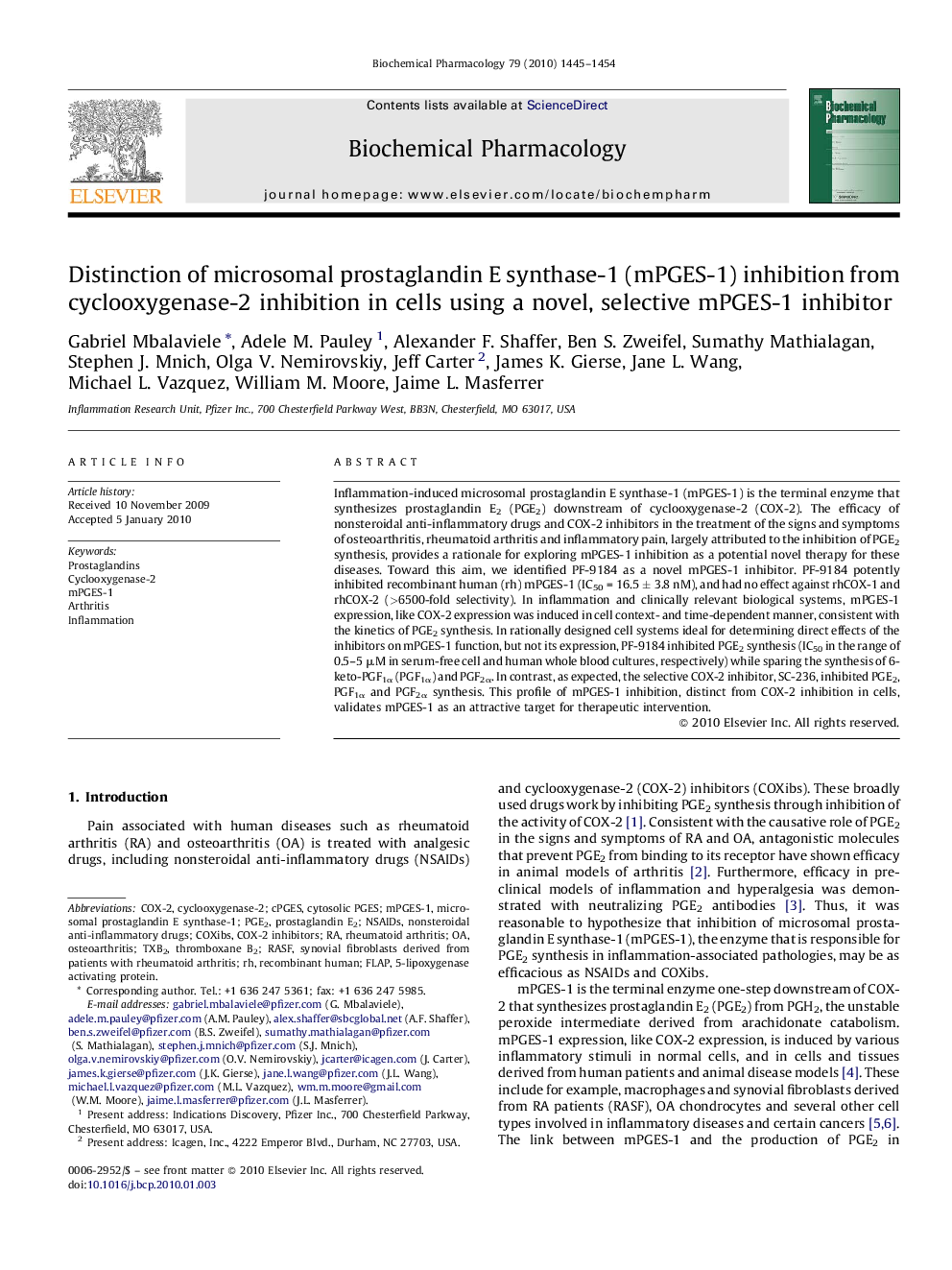| Article ID | Journal | Published Year | Pages | File Type |
|---|---|---|---|---|
| 2513650 | Biochemical Pharmacology | 2010 | 10 Pages |
Inflammation-induced microsomal prostaglandin E synthase-1 (mPGES-1) is the terminal enzyme that synthesizes prostaglandin E2 (PGE2) downstream of cyclooxygenase-2 (COX-2). The efficacy of nonsteroidal anti-inflammatory drugs and COX-2 inhibitors in the treatment of the signs and symptoms of osteoarthritis, rheumatoid arthritis and inflammatory pain, largely attributed to the inhibition of PGE2 synthesis, provides a rationale for exploring mPGES-1 inhibition as a potential novel therapy for these diseases. Toward this aim, we identified PF-9184 as a novel mPGES-1 inhibitor. PF-9184 potently inhibited recombinant human (rh) mPGES-1 (IC50 = 16.5 ± 3.8 nM), and had no effect against rhCOX-1 and rhCOX-2 (>6500-fold selectivity). In inflammation and clinically relevant biological systems, mPGES-1 expression, like COX-2 expression was induced in cell context- and time-dependent manner, consistent with the kinetics of PGE2 synthesis. In rationally designed cell systems ideal for determining direct effects of the inhibitors on mPGES-1 function, but not its expression, PF-9184 inhibited PGE2 synthesis (IC50 in the range of 0.5–5 μM in serum-free cell and human whole blood cultures, respectively) while sparing the synthesis of 6-keto-PGF1α (PGF1α) and PGF2α. In contrast, as expected, the selective COX-2 inhibitor, SC-236, inhibited PGE2, PGF1α and PGF2α synthesis. This profile of mPGES-1 inhibition, distinct from COX-2 inhibition in cells, validates mPGES-1 as an attractive target for therapeutic intervention.
Graphical abstractFigure optionsDownload full-size imageDownload as PowerPoint slide
